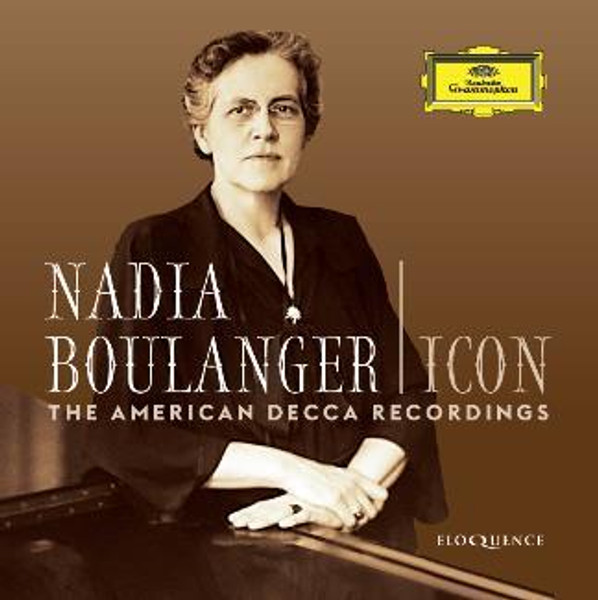Product Overview
Nadia Boulanger - Nadia Boulanger - Icon (CD 5 DISC SET) From Monteverdi to Brahms via French Baroque rarities: the Decca Gold (US) legacy of a complete musician, newly remastered and issued complete for the first time, with fascinating liner notes by Nigel Simeone. Original Jackets, Limited Edition. Composer, teacher, organist, pianist, harpsichordist, choir trainer, conductor, musicologist: there seemed to be no end to the talents of Nadia Boulanger though she liked to insist that her gifts paled in comparison to her tragically short-lived sister, Lili. Nadia compensated with ceaseless industry. By the time of her early twenties, having studied with Fauréand undertaken the famously rigorous Paris Conservatoire formation, she was already reviving Bach cantatas in concert. In this guise she came to the attention of the American heiress and assiduous sponsor of avant-garde culture in Paris, the Princessede Polignac, and with her support founded a vocal consort which made valuable and often-reissued HMV recordings of Monteverdi and Brahms in the 1930s. Boulanger's postwar recordings for American Decca, while also made in Paris, are much less widely known, having been issued on Brunswick LPs with limited availability outside the US and on Decca Gold in the US. Having returned to Paris after her wartimeexile on the American east coast, she revived her consort for concerts at the Polignac salon, drawing together the most resilient of her older colleagues, such as the tenor Hugues Cuénod, with younger vocal talents such as Nadine Sautereauand Irma Kolassi, who had already established an international career for themselves but were devoted to Boulanger and her tender tyranny in securing precise, selfless and stylish performances of a repertoire that was still largely the exclusive property of scholars rather than musicians. As well as returning to Monteverdi, the American Decca sessions of 1952Ó54 venture into what was then much less familiar territory, of chansons and madrigals by the likes of Josquin, Lassusand Le Jeune, winding up with a typically flamboyant Janéquinshowpiece which imitates an entire aviary. Then there are pioneering records of excerpts from music-dramas by Charpentier and Rameau, and finally a return to Brahms's domestic vocal music, though as with Monteverdi in 'new' and complementary repertoire, the Neue Liebesliederand a selection from the more introspective late vocal quartets Opp. 92 and 112. On all these records Boulanger's affection for the music shines through, as well as her scrupulous attention to the detail of its expression. "One finishes listening to this disc with renewed admiration for Monteverdi's astonishing genius. æ Nadia Boulanger's profound understanding of his genius is without peer in the world" Alec Robertson,Gramophone, July 1954 (Monteverdi) "It is in the French works that the group really reaches the heights. Here the light, French tone is perfectly apt, and it isgratifying to be able to report the ultimate subtlety ÓMlle. Boulanger's use of a different quality of vocal tone for each of theworks, depending on the period and the subject matter." High Fidelity, July 1953 (French Renaissance Vocal Music) "No-one living has mastered this style, in its grave urgency, better than Mme. Boulanger, who gives it back without contaminating its archaic eloquence with archness." High Fidelity, November 1953 (Rameau) "This disc æ displays her genius at its finest æ I have enjoyed every moment of this enchanting disc, andam sure it will have an appeal far outside specialist circles." Gramophone, June 1954 (French Renaissance Vocal Music) "A well-balanced and quite comprehensive selection of the music of Medéeæ The performances offered by Mlle. Boulanger and her group leave little to be desired in the way of energy and rhythmic vitality æ Sautereauoffers as perfect a version of Creuse'shalting, dying words as one could wish for." Musical Quarterly, July 1954 (Charpentier) "Nadia Boulanger's control of the score is wholly magnificent, a great artist at work æ wonderfully vivid" Philip Hope-Wallace, Gramophone, July 1954 (Charpentier) "Spirit and fine ensemble." Gramophone, August 1955 (Brahms)



